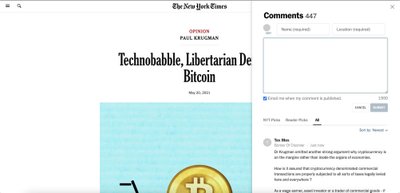“I would like to stress that during the pandemic we have seen a rise not only in the dissemination of disinformation and propaganda, but also in the creation of disinformation and propaganda campaigns that disproportionately distort the free expression of public opinion. The ability to express one’s opinion and views publicly and freely is a key value to us. Our media group has chosen to serve democracy as its main mission,” said Hans H. Luik, founder and main shareholder of the media company, Ekspress Grupp, which owns the Delfi news portals.
Media outlets all over the world are moving into the direction of reader revenue and our Delfi Plius community is getting stronger every day. Delfi Plius already have 11 000 paying customers and the way forward is to give more advantages to our community members. We hope that in the future the cleaner enviroment for the good discussions will always be in Delfi.
“Having considered these circumstances, and also in view of the technological update of the entire portal, we have decided to thoroughly review the commenting policy as well. Some of the technological and visual solutions have been decided upon, but in June we will conduct a survey to ensure a user-friendly portal, and users will be able to voice their expectations,” said Vytautas Benokraitis, Delfi CEO.
He stressed that even after the changes Delfi would continue to moderate comments and would use technological tools to ensure quality discussions.

The users will also be asked about the “Like” button and emoticons, the method for arranging comments below articles, and other issues.

“Delfi is and will be a news portal for all the citizens of Lithuania, whose main value is the right to freedom of speech and its enforcement. Comments below articles also constitute freedom of speech, which has to be upheld and protected. Nevertheless, it should be understood that this right is not absolute and demands responsibility from the commenter. The goal of this decision is to ensure that our readers feel free and comfortable in the commenting section, and are able to discuss relevant topics not in their social bubble, but with all the people of Lithuania,” said Rasa Lukaitytė-Vnarauskienė, Delfi Editor-in-Chief.
According to Delfi’s representative reader poll, conducted in March, the portal has a very loyal audience: 74% of the respondents indicated visiting the portal daily or almost daily; 15% – several times a week; and the rest – once a week or more seldom.
In terms of comments, 72% of the respondents read them; 28% – do not read comments. Of those who read comments, 42% do so very often; 48% – sometimes; 10% – hardly ever, only on rare occasions. 80% of the respondents do not write comments, and 20% write them.

